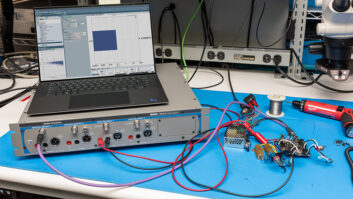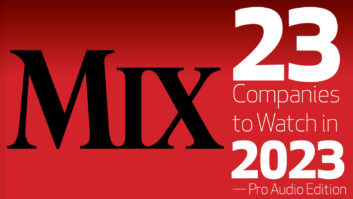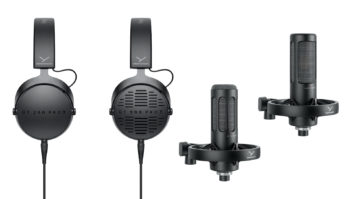Editor’s Note: Welcome to Need to Know, a monthly feature where we explain complex topics and demonstrate how they apply to each industry we serve. Need to Know stories appear on our websites and in our magazines. Keep coming back for future topics, to include cybersecurity and artificial intelligence.
When the FCC closed bidding in its auction for frequencies in the 600 MHz spectrum in April 2017, the situation didn’t look good for the countless audio professionals whose wireless mics and in-ear monitors operated in that frequency band. And then things got worse.
When the dust settled, T-Mobile had spent $7.9 billion to sew up 45 percent of the 600 MHz band, or roughly 35 MHz. It was quite a coup, too, as nabbing such a large chunk of the 600 MHz range—known in the telecom industry as Band 71—would provide a foundation for the carrier to build a new 5G network across the United States. With exclusive access to a prized parcel of low-frequency spectrum, T-Mobile would be able to offer improved reception and broadband access for its customers, because low-frequency transmissions can penetrate structures four times better and travel twice as far as midband ones. Building out in the 600 MHz range would also provide the company with access to a whole new array of customers, extending the reach of broadband to low-income and rural communities—two groups most commonly without high-speed internet access.
However, what the auction meant for audio pros whose wireless gear operated in the 600 MHz service band (617-652 MHz and 663-698 MHz) was that they had to get out—and the sooner, the better. Fines would be imposed on those who failed to comply with FCC’s eviction notice.
This is not the first time many audio pros have faced this issue; in 2010, the FCC bumped pro audio out of the 700 MHz band (roughly 698-806 MHz) as it requisitioned that range for the use of public safety and some commercial interests. This time around, however, affected pro audio users would have some time to make the transition—for the 600 MHz exodus, the FCC provided a 10-phase schedule of multiple deadlines that would gradually evict all existing users from the range by July 13, 2020.
That plan didn’t last. After plunking down nearly $8 billion, T-Mobile was anxious to move forward and laid down its own timeline, accelerating the FCC’s schedule by 16 months as it envisioned an aggressive, fast-paced deployment that would lay the groundwork for the jump to 5G as soon as possible. The carrier fired up its first 600 MHz network site in Cheyenne, WY, in August 2017 and never looked back; by year’s end, it had already covered more than 1 million square miles. To help maintain that blistering pace, T-Mobile entered partnerships with FOX Television Stations and others to assist in repacking stations across the country, speeding up their access to cleared spectrum lanes.
With T-Mobile moving faster than anyone anticipated, audio pros need to replace any equipment that works in Band 71 as soon as possible. The FCC prohibited the sale and leasing of wireless audio gear in that range after Oct. 13, 2018, but you’d be hard-pressed to find any brand-new 600 MHz systems for sale in the U.S. now anyway. Most major wireless mic manufacturers have responded with special discounts and trade-in programs to soften the blow for customers who have to purchase sometimes eye-watering numbers of new systems.
Naturally, some pros will consider taking a risk and continuing to use the 600 MHz gear they already own, since they’re being forced to abandon systems that work just fine. While experts in the field admit that the government is unlikely to actively police frequencies, they also note that any entity that shelled out billions for the spectrum range is almost certain to bring violators to the attention of the FCC. That can lead to fines of $10,000 per violation, or per day for a continuing violation, and $75,000 for any single act or failure to act—enough money to buy plenty of new, street-legal wireless systems.
Clive Young is the editor of Pro Sound News.
Need to Know More?
Do you have a burning question about 5G? Or maybe there’s a particular topic you’d like to see us tackle in future installments of Need to Know. Email us at [email protected] and we’ll put our top minds on it!
Other Industries
• 5G and Pro Audio [Pro Sound News]
• 5G as a Platform [Sound & Video Contractor]
• 5G and Video Production [Creative Planet Network]
• 5G and Television [TV Technology]
• 5G and Cable [Multichannel News]






